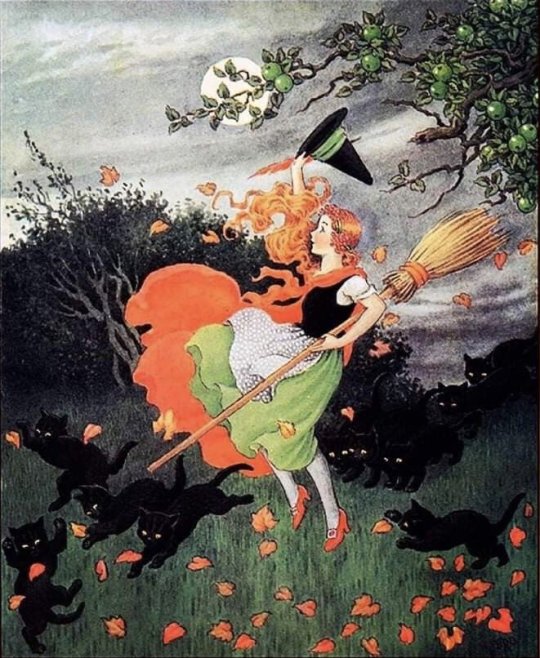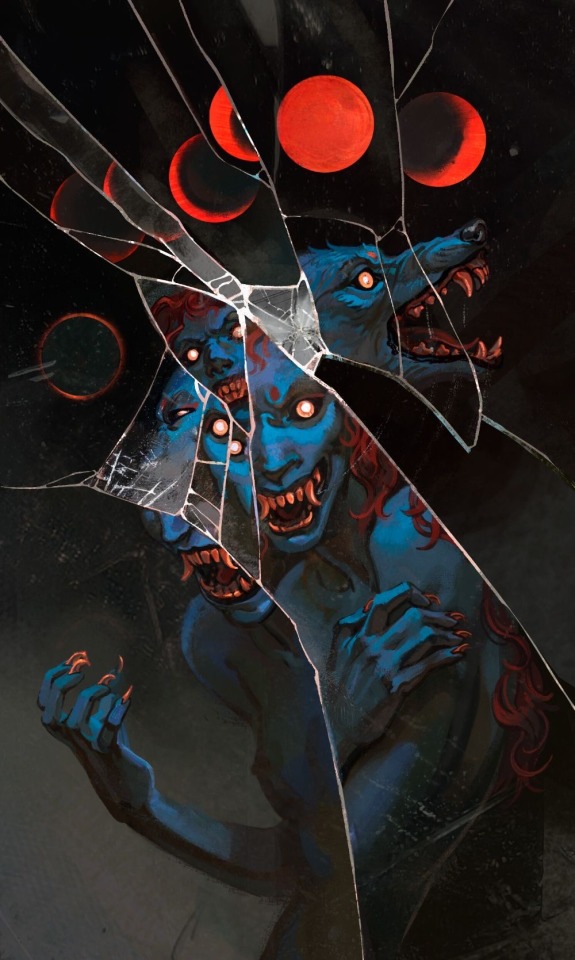Follow me down a path lined with the mysteries of the past. Stories and legends of fantastical feats, incredible creatures and the loves and losses that have shaped our own lives and cultures for decades. Welcome to Mysterious Mythology.
Don't wanna be here? Send us removal request.
Photo
Kelpie

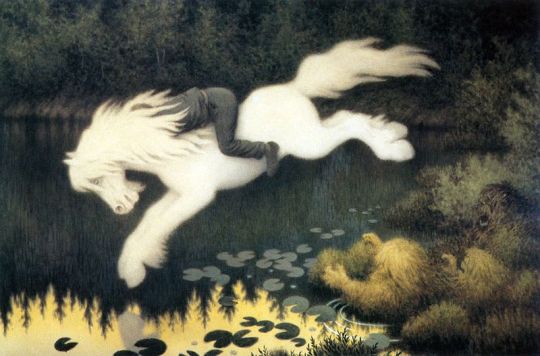
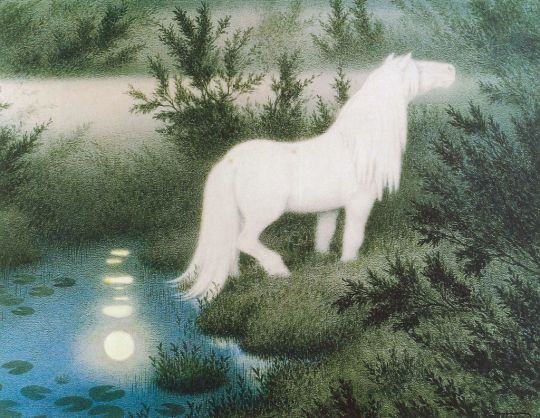
Nøkken by Theodor Kittelsen
in it’s true form and disguised as a white horse
31K notes
·
View notes
Note
top 5 ancient artistic cultures (not sure about phrasing. yknow like "jomon style" or "anglo saxon art")


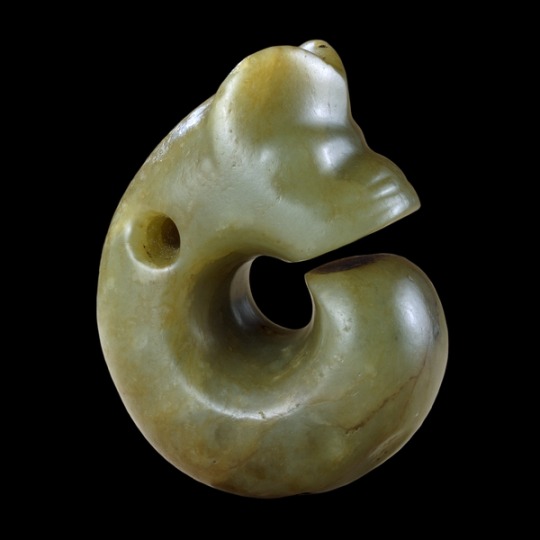
the jade creatures of Hongshen, a late Neolithic culture of northeast China contemporaneous w the latest stages of Sredny Stog and just about all of Yamnaya. attempts to find analogues to these critters in nature have borne little fruit, not least bc the Hongshen appear to had been perfectly capable of pursuing realism in their art – when they wanted to. this article argues the creatures draw inspiration from the shape of human bone and cartillage, like so:

the rest go as follows:
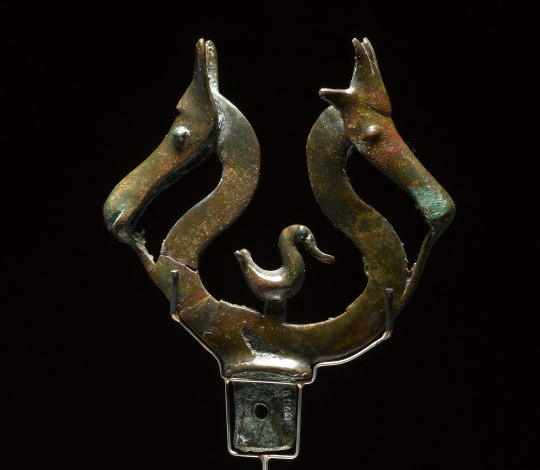
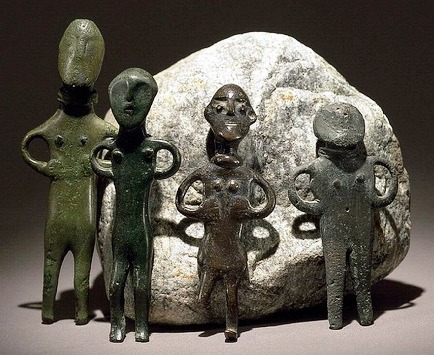

2. figurines of Bronze Age Scandinavia. I just think these look really aesthetically pleasing. look at those curves! idk what to think about attempts to interpret the figurines as depicting historically attested Nordic deities. the most famous artefact to survive from the Nordic Bronze Age, the Trundholm Chariot, seems to depict a myth of only marginal significance to later Norse civilisation

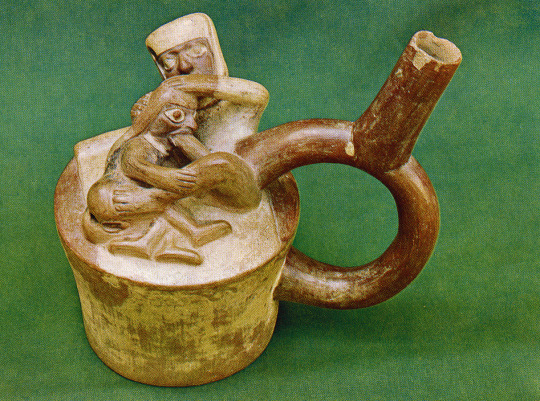

3. the erotic pottery of the Moche, predecessors of the Chimor, who flourished on the coast of northwestern Peru prior to their conquest by the Inca. this post goes a little into the various theories concerning the purpose of the so-called "porn pottery" – I like Larco Hoyle's idea that the pottery (none of which appears to depict penis-in-vagina intercourse) was used by the Moche in order to teach and show methods of natural birth control. but ofc there's a direct analogue in depictions of sodomy on Greek pottery, which doesn't really seem to had served a didactic purpose

4. the Thinkers of Hamangia - not much of a "style" given that it's only these two figurines, I suppose, but these two are my favourite sculptures to come out of Neolithic Europe by far. could write a whole post about them, honestly; definitely among my favourite pieces of prehistoric art in general. afaict, the figurines are nowadays mostly interpreted as a prehistoric equivalent to Gauguin's Where Do We Come From? - I personally prefer to think of them as analogous to his Grape Harvest at Arles


5. cosmetic palettes of late Neolithic Egypt, or what is properly known as the Naqada III phase of Protodynastic Egypt. I just find them to be really pretty – and I kind of love the idea of decorating what is basically a make-up container with depictions of your country's military conquests. the most famous of these palettes is the Narmer Palette; my personal favourite is the Bull Palette, shown on the left. I'd totally use them to mix my kohl
4K notes
·
View notes
Text

МЕH-THE
A name for a type of Yeti mentioned in the beliefs of the Nepalese people from the Himalayas. There were three different kinds of Yeti, categorized according to height. The Yeh-The is the smallest, the Meh-The is the medium-sized one, and the Dzu-The is the largest.
Text from The Element Encyclopedia of Magical Creatures by John and Caitlin Matthews (HarperElement, 2005)
41 notes
·
View notes
Text

MINHOCÃO
During the late 19th century, a number of sightings were recorded in numerous parts of South America of a creature resembling a giant earthworm. One account, dating from the 1840s near the Rio dos Papaganaios in the Parana State, described a woman who went to draw water from a well one morning. She saw, a short distance off, an animal that she described as being as large as a house moving along the ground. In the same district, a young man later saw a huge pine suddenly overturn, the surrounding earth begin to move, and an enormous, black worm-like animal appear, about 80 ft long with two horns on its head. A report in the American Journal of Science from the period mentions instances where livestock had been captured by one of these creatures and dragged under the water, suggesting that it was actually a type of water serpent. The name Minhocao comes from the Portuguese word minhocar (earthworm). There is also a similar creature from the folklore of Nicaragua called Sterpe, which was described as being similar to a huge snake. Various suggestions have been put forward by cryptozoologists, including the suggestion that the Minhocao was a surviving Glyptodont (a prehistoric South American animal which resembled an armadillo); while others have suggested a giant Caecilian, a worm-like amphibian native to Mexico and South America. No sightings have been reported since 1870.
Text from The Element Encyclopedia of Magical Creatures by John and Caitlin Matthews (HarperElement, 2005)
33 notes
·
View notes
Text
5K notes
·
View notes
Text

An allegory of power - Georg Janny (detail)
2K notes
·
View notes
Text

Celtic green man mask from I put on my robe and wizard hat Pinterest.com
128 notes
·
View notes
Text

Celtic green man mask from I put on my robe and wizard hat Pinterest.com
128 notes
·
View notes
Photo
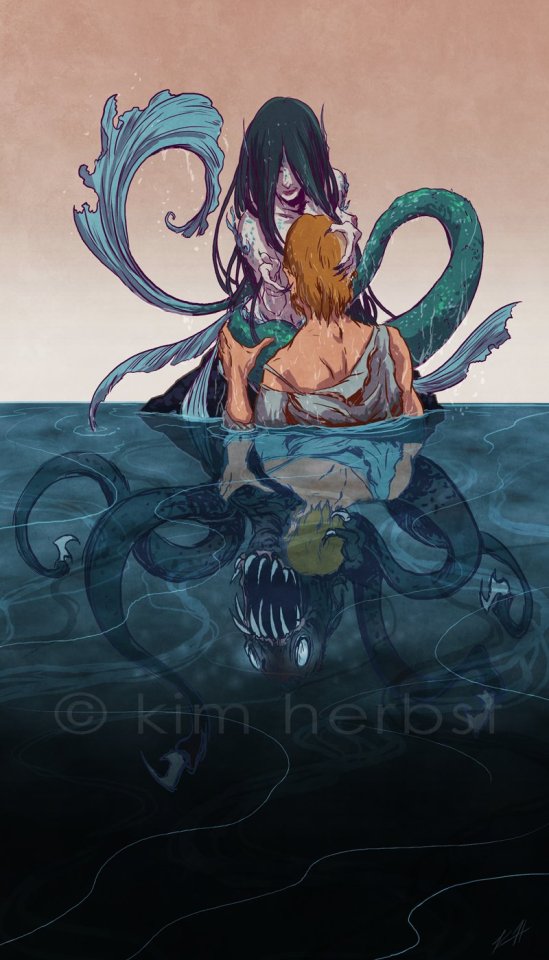
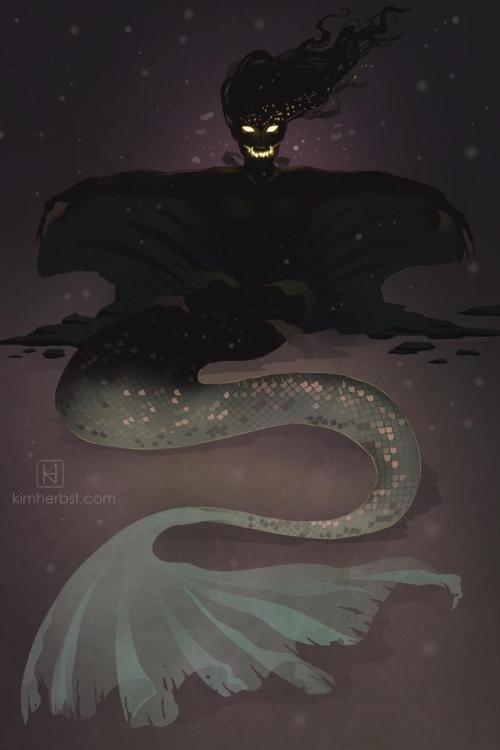
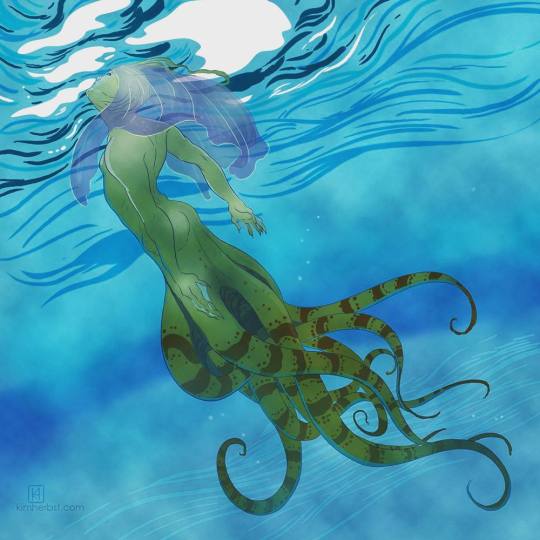

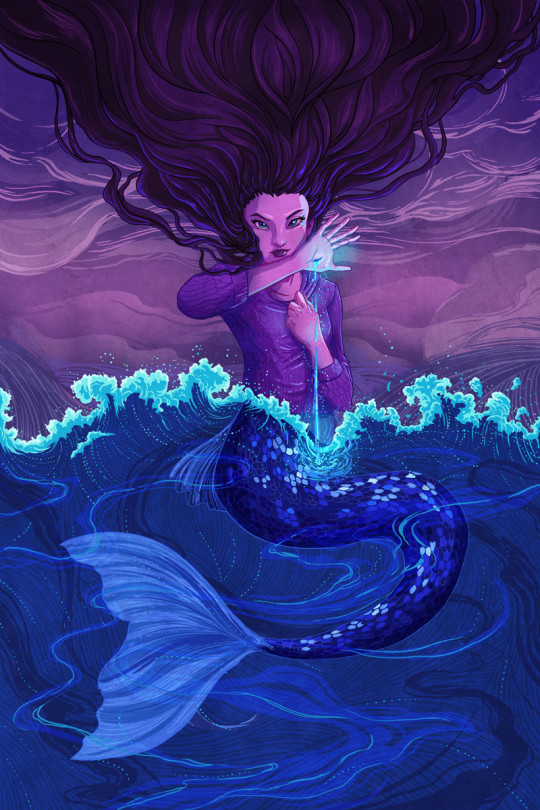
Kim Herbst - https://twitter.com/kiwifruitbird - https://www.etsy.com/shop/kiwifruitbird - https://www.facebook.com/pages/Kim-Herbst/181101308604103?_rdr=p - https://www.instagram.com/kiwifruitbird - http://kimherbst.tumblr.com - https://www.artstation.com/artist/kimherbst - http://www.kimherbst.com - https://www.patreon.com/kimherbst?ty=h - https://society6.com/kimherbst - https://www.linkedin.com/in/kimherbst
10K notes
·
View notes




